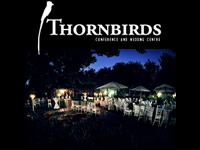Marriage Contracts
It is important to draw up an Antenuptial Contract (ANC) before marriage to spell out ownership of assets and liability for debts. This contract needs to be signed in front of a Notary Public - a qualified attorney and registered at the Deeds Office within three months of marriage.
There are three different types of marriage arrangements (contracts) in South Africa:
- In community of Property
- Out of Community of Property – With Accrual
- Out of Community of Property – Without Accrual
If you do not draw up a marriage contract, your marriage is automatically In Community of Property (Half is yours, half is mine). This means that all your assets and liabilities, acquired before or during the marriage, fall into one joint mutually managed estate. As all debts – past, present and future are shared; your collective assets will be at risk from creditors. Also, some transactions relating to the estate, such as opening a bank account, can only be performed with the sanction of the other spouse, which is often impractical. Although this is a very accepted form of marriage, parties must always make certain that they are familiar with the advantages as well as disadvantages of choosing this marriage system.
Even though you may have your own bank accounts in your own names, there is no such thing as lending money to one another and giving it back. Everything she earns is yours and vice versa. All loans are both hers and his. Couples married in community manage the one joint estate mutually. This means that either party can, subject to certain safeguards, enter into transactions involving the commonly owned property.
They are some acts that one spouse may not perform without the written consent of the other. The principal ones are:
- Selling your house or taking a bond over it (mortgaging) or granting a servitude over land;
- Entering into a contract to alienate, mortgage or grant a servitude (such as a right of way) over land;
- Alienating or pledging investments such as shares, stock, insurance policies, mortgage bonds, fixed deposits or similar assets;
- Alienating or pledging jewellery, coins, stamps, paintings or other assets mainly held as investments;
- Withdrawing money in the name of the other spouse at any financial institution;
- As buyer or lessee, entering into a credit agreement or leasing transaction to which the Credit Agreements Act, 1980 applies;
- As purchaser, entering into a contract to which the Alienation of Land Act, 1981 applies;
- Binding him or herself as surety.
With a contract that is Out of Community of Property (with accrual) husband and wife are able to keep separate estates during the marriage. In the event of death or divorce, the net increase in the value of each partner’s estate is calculated and that increase is divided equally. Only the profits accumulated during the marriage are shared, while debts are not. Any assets accumulated by the respective partners before marriage remain their property, and are not shared. This is normally considered to be the most beneficial option as it offers the sharing benefits of an out of community of property agreement combined with the protection of the in community system.
With a Out of Community of Property (without accrual) contract the estate remains completely separate during and after the marriage. Neither spouse can lay claim to any part of the other’s estate. While this option allows spouses asset protection as well as independence, it may not be as fair as a marriage with the accrual system, as there is no recognition of the non-financial contribution made.





